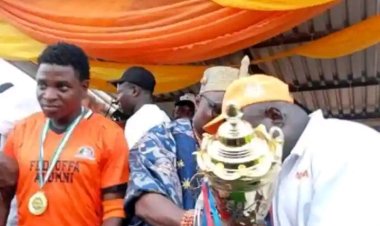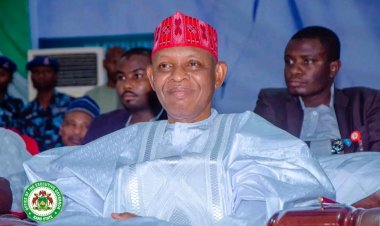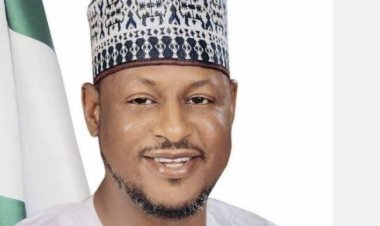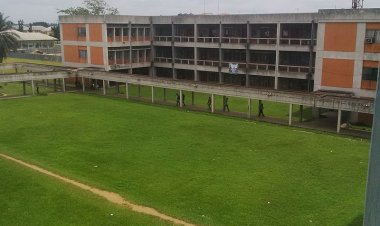Sule Lamido University Hosts Public Lecture on Northern Youth Migration to Southern Nigeria
Sule Lamido University, Kafin Hausa, will host a public lecture on February 18, 2025, discussing the migration of northern Nigerian youth to the south and its economic impact.
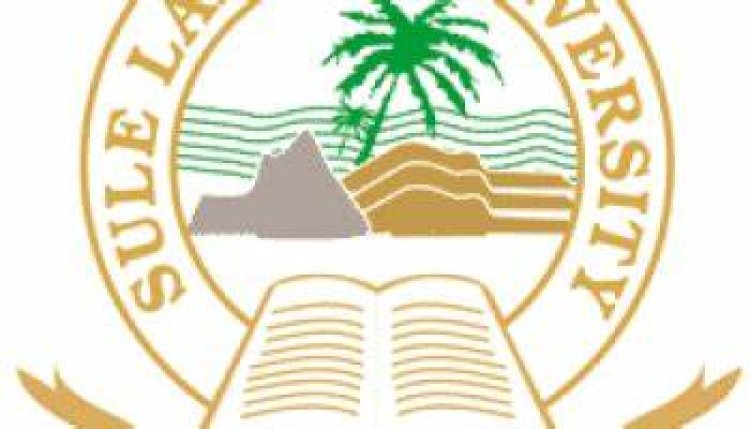
The Faculty of Social and Management Sciences (FSMS) at Sule Lamido University, Kafin Hausa, is set to host a public lecture on Tuesday, 18th February 2025, focusing on the migration of northern Nigerian youth to the southern part of the country.
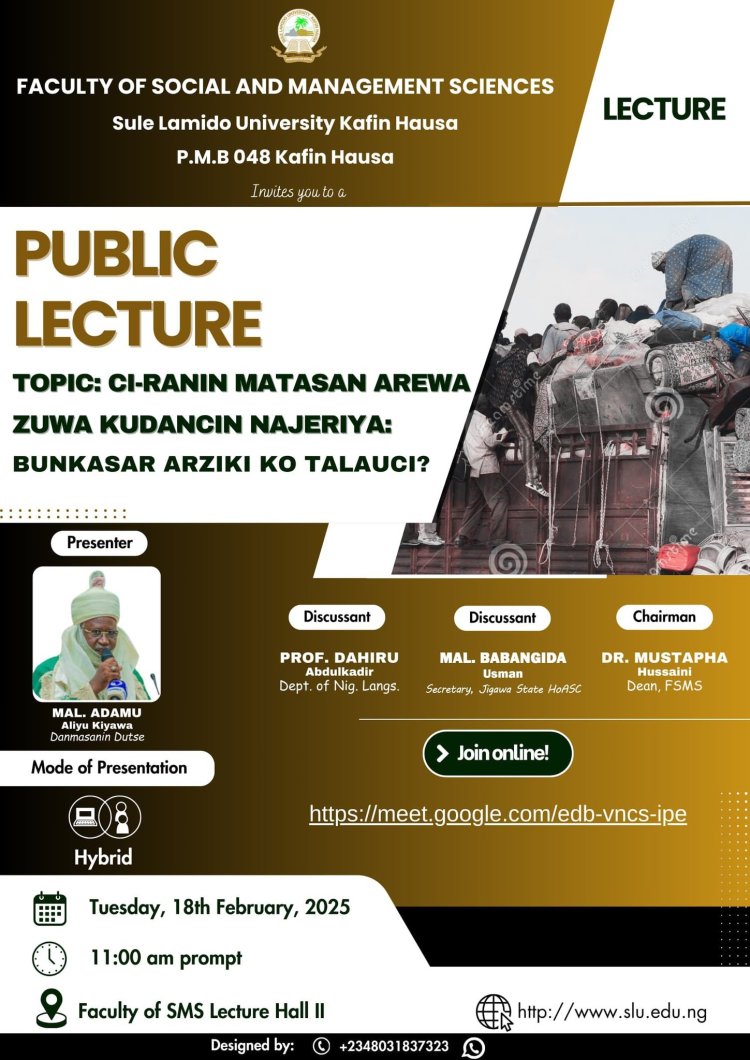
The lecture, titled 'Ci-ranin Matasan Arewa Zuwa Kudancin Najeriya: Bunkasar Arziki Ko Talauci?' (The Migration of Northern Youth to Southern Nigeria: Economic Growth or Poverty?), will be delivered by Mal. Adamu Aliyu Kiyawa Danmasanin Dutse. The event will take place at the FSMS Lecture Hall at 11:00 AM prompt and will also be accessible online via Google Meet at https://meet.google.com/edb-vncs-ipe.
The hybrid-format lecture will include discussions from esteemed scholars and professionals, featuring Prof. Dahiru Abdulkadir from the Department of Nigerian Languages and Mal. Babangida Usman, Secretary of the Jigawa State House of Assembly Service Commission (HoASC).
The session will be chaired by Dr. Mustapha Hussaini, Dean of the Faculty of Social and Management Sciences, who is expected to provide insights into the socio-economic implications of youth migration in Nigeria.
This lecture is part of the university’s ongoing effort to foster intellectual discourse on contemporary social and economic issues affecting the nation. The event promises to provide an in-depth analysis of the impact of migration on economic growth and social development in both the northern and southern regions of Nigeria.
Academics, students, policymakers, and the general public are encouraged to participate in the discussion and contribute to the critical evaluation of this important issue.

 Chris Oyeoku Okafor
Chris Oyeoku Okafor 
